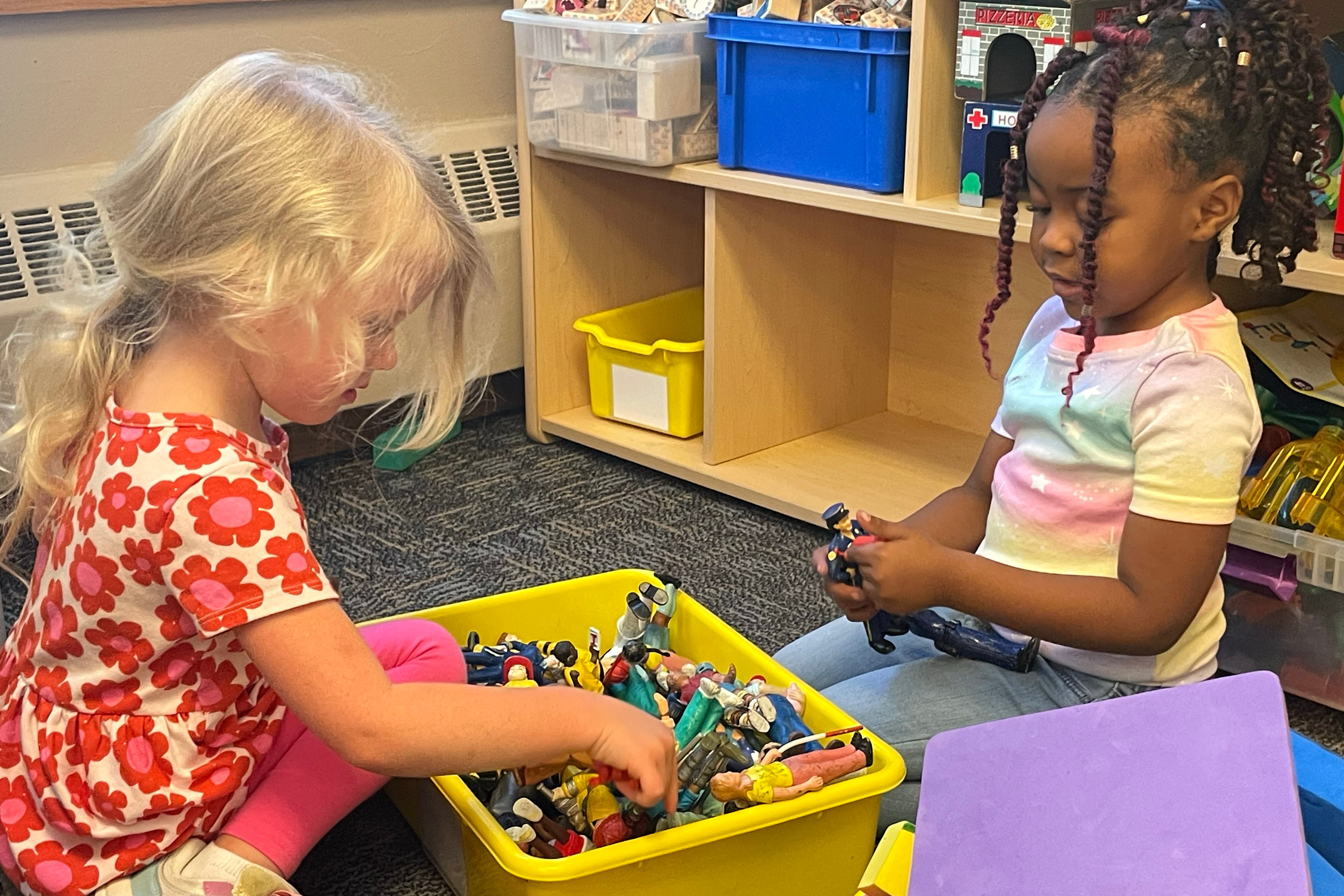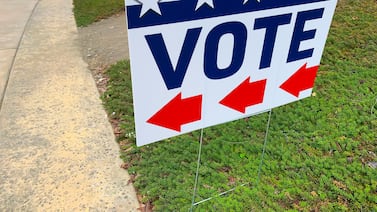Sign up for Chalkbeat’s free monthly newsletter The Starting Line to keep up with news about early childhood education.
Starting this fall, Colorado is offering 10 to 15 hours of tuition-free preschool to all 4-year-olds as part of the state’s universal preschool program. More than 40,000 families have already applied, but the application process is still open and will be available throughout the year.
But what if you need more class time for your child than just 10 to 15 hours a week?
There are several ways to get financial help for those extra hours. The universal preschool program will pay for up to 30 hours of preschool a week for some children. They must be from low-income families and fall into one of the following categories: English language learner, homeless, in foster care, or have a special education plan. Simply being from a low-income family is not enough to qualify for 30 hours.
We’ve compiled a list of other programs that may help cover extra hours of preschool, including Head Start, the Colorado Child Care Assistance Program, and, for Denver residents, the Denver Preschool Program. Summit County also offers tuition assistance for preschoolers, through its Summit Pre-K Program, though the application window generally runs from May 1-31.
Military families may be eligible for financial help through the Military Child Care in Your Neighborhood program, which is for families who can’t access military-operated child care programs because of waitlists or the distance from their homes.
Finally, it’s worth asking your child’s preschool if they offer scholarships or discounts that could help lower the cost of care.
For questions about universal preschool or adding extra hours, contact the universal preschool help desk at 303-866-5223 or the local group in your county that is helping run universal preschool.
Here’s a quick look at some of the programs that can be combined with universal preschool to provide students with full-day classes.
Colorado Child Care Assistance Program (CCCAP)
What is it: A state program that helps low-income families pay for child care, including preschool. Parents must be working, looking for work, or attending school.
Who’s eligible: Families whose children are citizens or legal permanent residents and whose household income is 200% to 270% of the federal poverty line. That’s $60,000 to $81,000 for a family of four. Each county sets its own income criteria, so check here for details based on where you live.
Financial aid: CCCAP covers most of the cost of child care for qualifying families, with the amount varying based on how much care a child needs above their universal preschool hours. Families who qualify also have to pay a parent fee — a co-pay that varies based on income, family size, and the number of children in child care.
How to apply: Online in English or Spanish, or contact your county’s department of human services.
What to know about combining with universal preschool: Only some preschools participate in the Colorado Child Care Assistance Program. Ask the universal preschool provider you selected if they take CCCAP, or find the provider name in the universal preschool application and click on the “View More Information” link. A pop-up box will tell you more about the provider, including if they take CCCAP or offer other financial help.
Some families who qualify for CCCAP may not receive assistance because of funding shortfalls — particularly once federal COVID stimulus dollars run out in 2024.
Denver Preschool Program
What is it: A Denver program that provides sliding-scale tuition help for 4-year-olds in preschool regardless of family income.
Who’s eligible: Denver residents who have 4-year-old children attending preschool regardless of immigration status.
Financial aid: Tuition credits range from $36 to $1,227 a month for up to 12 months, and are paid to the school on the family’s behalf. Use the Denver Preschool Program’s tuition credit calculator to estimate your monthly tuition credit. Credits are based on family size, income, and the quality of the preschool selected.
How to apply: Online any time in English or Spanish, or contact the Denver Preschool Program at (303) 595-4377 or info@dpp.org. Applications in PDF form are available in Chinese/Mandarin, French, Russian, Vietnamese, Somali, Amharic, and Nepali.
What to know about combining with universal preschool: Apply to universal preschool first and once your child is enrolled in a preschool, apply to the Denver Preschool Program. This is necessary because the Denver Preschool Program application requires that families list the preschool their child is attending. Most Denver preschools participating in universal preschool also participate in the Denver Preschool Program, but there are a few that don’t. Check here to find preschools participating in the Denver Preschool Program.
Head Start
What is it: A federally funded program that provides free preschool, health services, and family support to children from low-income families, regardless of immigration status.
Who’s eligible: Children who are 3 to 5 years old in families with a household income at or below the federal poverty guideline. That’s $30,000 a year for a family of 4. Children who are homeless, in foster care, or whose families receive public assistance are also eligible regardless of income.
Financial aid: Head Start is a free preschool program that provides part-time or full-time hours to the children it serves.
How to apply: Search here for providers near you and contact the center directly to apply. For help finding a Head Start provider, call 866-763-6481.
What to know about combining with universal preschool: Only certain preschool providers offer Head Start. The universal preschool application also shows whether providers participate in Head Start. For help, contact the Head Start provider you’re interested in or the local group that helps run universal preschool.
Ann Schimke is a senior reporter at Chalkbeat, covering early childhood issues and early literacy. Contact Ann at aschimke@chalkbeat.org.






